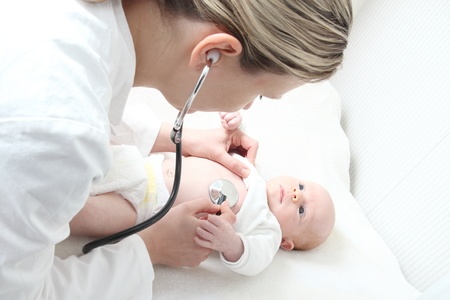 Newborn screening tests are important tools used to identify potentially serious disorders that could put your baby at risk. The screening tests are performed on all infants before they leave the hospital after birth.
Newborn screening tests are important tools used to identify potentially serious disorders that could put your baby at risk. The screening tests are performed on all infants before they leave the hospital after birth.The tests are done between 24 hours and 7 days of age and require a blood sample taken from a small needle stick in the heel. A second sample is collected when the baby is between 1 and 2 weeks old.
The newborn screening test requirements vary from state to state, but, in Texas, babies are screened for 53 different disorders and medical conditions. These include
cystic fibrosis, galactosemia, phenylketonuria (PKU) and other serious medical conditions that are not typically apparent at birth.
A pulse oximeter will also be used to measure your baby’s oxygen levels. This is a painless, non-invasive test that helps identify serious heart problems and other conditions that affect oxygen levels.
In addition, the state requires hospitals and birthing facilities to conduct hearing tests so that infants with hearing loss can be identified and treated early. Prompt treatment helps to prevent communication and cognitive skill development delays.
If you have questions about the newborn screening tests, talk with your obstetrician or pediatrician. Some test results will be available before you and your baby leave the hospital. Other test results may take longer, but your hospital or your baby’s health care provider will notify you if any abnormalities are found or if further testing is necessary.
A complete list of the required newborn tests can be found on the Texas Department of State Health Department website at http://www.dshs.state.tx.us/lab/newbornscreening.shtm.





